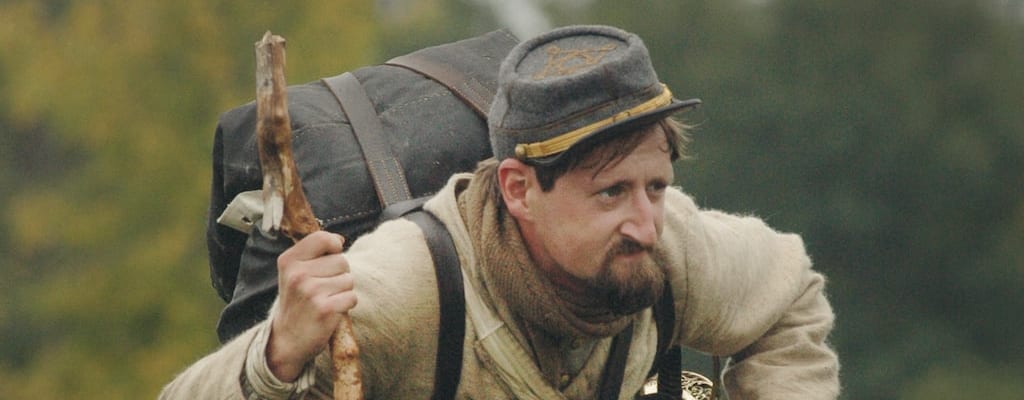Three Stooges: Idiom Meaning and Origin
What does ‘Three Stooges’ mean?
The idiom "Three Stooges" refers to a group of three people who are considered silly, clumsy, or incompetent, often engaging in slapstick comedy. It implies a lack of intelligence or common sense in their actions or behavior.

Idiom Explorer
The idiom "three skips of a louse" means something that is insignificant, unimportant, or of little consequence. It suggests that the issue at hand is so trivial that it can be dismissed or ignored without any real impact.
The idiom "third wheel" refers to a person who is unwanted or unnecessary, often feeling left out or awkward in the presence of a couple or a group of close friends.
The idiom "third string" refers to being the least skilled or experienced person in a particular group or organization.
The idiom "some people" refers to an unspecified group of individuals. It is often used to describe certain behaviors, opinions, or actions that are generally disliked or considered negative by a speaker. However, it is important to note that the idiom does not apply to everyone and should not be generalized to all people.
An idiom often used to describe a person who is disliked or considered bad, with negative qualities or behavior.
The idiom "play the fool" means to act silly or foolish, often for amusement or as a way to hide one's true thoughts or intentions.
The idiom "play silly buggers" means to behave foolishly or engage in pointless or mischievous actions. It is often used to describe someone who is being deliberately difficult or acting in a way that is not serious or productive.
The idiom *onesie-twosie* refers to a small number of something, often implying that it is not significant or important. It can also describe actions or events that occur in a random or haphazard manner.
Decoding the Laughter
The idiom "Three Stooges" refers to a popular American comedy act that originated in the early 20th century. It is often used to describe a situation or group of people engaging in chaotic or foolish behavior. Here are the facts known about this idiom:
The comedy team known as the Three Stooges consisted of Moe Howard, Larry Fine, and Curly Howard. Curly was later replaced by his brother Shemp. They were a trio of brothers who were known for their humorous chemistry and comedic performances.
The Three Stooges began their career in vaudeville acts, performing in theaters across the country. They entertained audiences with their slapstick humor, physical comedy, and rapid-fire verbal exchanges. Their acts were filled with exaggerated antics, practical jokes, and puns, which made them popular among viewers. They became famous for their trademark eye pokes, head bonks, and slapstick violence.
As their popularity grew, the Three Stooges ventured into short films and eventually feature films. They appeared in over 200 short films throughout their career, gaining a large following and becoming one of the most recognizable comedy acts in American history. Their characters and style of comedy resonated with audiences, and they became cultural icons.
The Three Stooges were widely known for their distinctive personalities. Moe Howard was the leader of the group, known for his aggressive disciplinarian role. Larry Fine played the role of the mild-mannered middleman, providing a balance to the chaos. Curly Howard, with his zany and childlike character, brought a unique energy to their performances.
In popular culture, the expression "Three Stooges" is often used metaphorically to describe a situation or group of people who engage in foolish, bumbling behavior reminiscent of the comedy trio. It can be used to suggest incompetence, chaos, or recklessness.
The idiom "Three Stooges" is also used to describe a group of three people who have humorous chemistry or who are known for their comedic performances. Just like the Three Stooges themselves, these individuals often rely on slapstick humor and physical comedy to entertain their audience.
Another related idiom is "Three Musketeers," which represents a group of three people who work together as a team. The Three Stooges can be seen as a comedic version of the Three Musketeers, with their humorous chemistry and ability to entertain audiences with their collaborative performances.
Similarly, the idiom "three-ring circus" can be related to the Three Stooges. A three-ring circus is a chaotic and frenzied event with various activities happening simultaneously in different areas. This chaotic atmosphere is reminiscent of the comedic chaos often seen in the performances of the Three Stooges. They would often create havoc and engage in slapstick comedy that can be compared to the chaos of a three-ring circus.
The enduring popularity of the Three Stooges ensures that the idiom "Three Stooges" remains embedded in American culture. It continues to be used to describe chaotic or foolish behavior, as well as to refer to a group of three individuals who exhibit humorous chemistry. The comedic legacy of Moe Howard, Larry Fine, Curly Howard, and Shemp Howard lives on through the idiomatic use of "Three Stooges."
Example usage
1. He was so clumsy, he tripped over his own feet and knocked into the wall like one of the Three Stooges.
2. The comedian's slapstick performance reminded the audience of the humor of the Three Stooges.
3. The project was a disaster from the start, with constant mishaps and misunderstandings among the team members - like a real-life version of the Three Stooges.
More "Comedy" idioms



